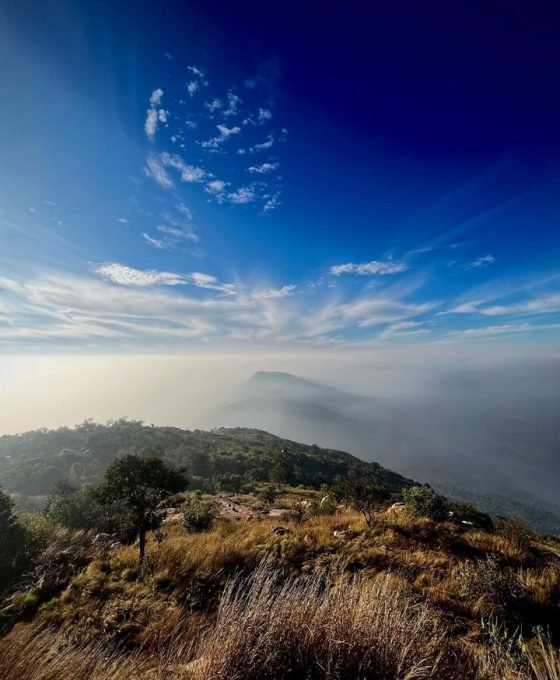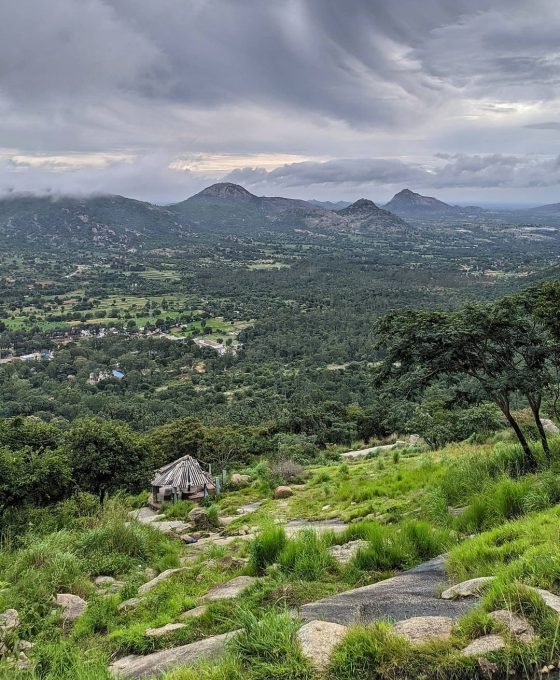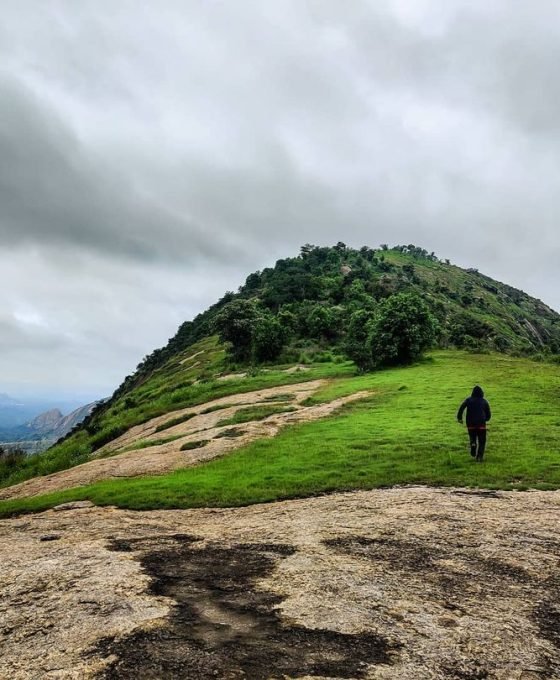Things to do in Bangalore
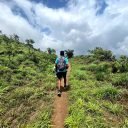
Trekking

Night Trek

Camping

Parties
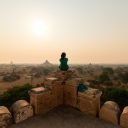
One Day Trips
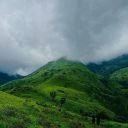
Two Days Trip
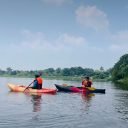
Adventure

Workshop

Trekking

Camping
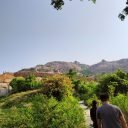
One & Two Day Trips

Adventure & Parties
Here's Why the Highest Peak in Karnataka Is a Must-Visit for Adventure Seekers
Introduction
Nestled in the picturesque Western Ghats of India, the highest peak in Karnataka, Mullayanagiri, stands tall at an impressive 6,330 feet (1,930 meters). This majestic mountain is a haven for nature lovers, adventure enthusiasts, and spiritual seekers alike. In this comprehensive guide, we will explore everything you need to know about Mullayanagiri, from its geographical features and trekking routes to local culture and best visiting times.
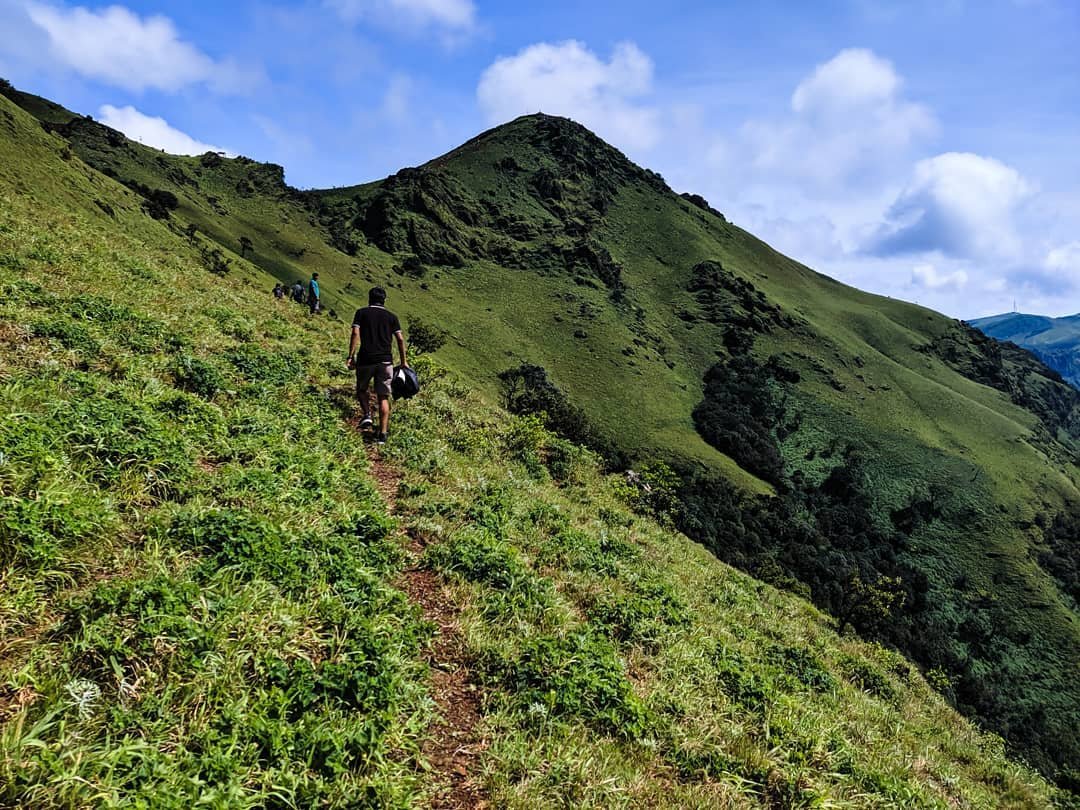
Geography and Location
Location Details
Mullayanagiri is located in the Chikkamagaluru district of Karnataka, approximately 280 kilometres from Bangalore. The peak is part of the Western Ghats, a UNESCO World Heritage Site known for its rich biodiversity and scenic landscapes.
Climate
The climate at Mullayanagiri is typically mild, with temperatures ranging from 15°C to 30°C. The area receives substantial rainfall during the monsoon season (June to September), making the landscape even more lush and verdant.
Historical Significance
Legends and History
Mullayanagiri holds significant historical and religious importance. It is believed that the sage Mullappa Swamy meditated here, and a small temple dedicated to him stands at the summit. The peak is also part of the Baba Budan Giri Range, named after the Sufi saint Baba Budan, who introduced coffee to India.
Flora and Fauna
Unique Species
The flora and fauna around Mullayanagiri are diverse and unique. The region is home to several endemic species of plants and animals, including the Nilgiri Tahr, Malabar Giant Squirrel, and numerous bird species.
Conservation Efforts
Efforts are being made to preserve the rich biodiversity of the Western Ghats. Several conservation programs aim to protect the natural habitat and ensure the survival of endangered species.
Best Time to Visit
Seasonal Guide
The best time to visit Mullayanagiri is between September and March when the weather is pleasant and conducive for trekking. The post-monsoon season offers lush greenery, while the winter months provide clear skies and stunning views.
Weather Patterns
Understanding the weather patterns is crucial for planning a trip. The region experiences heavy rainfall during the monsoon, and it’s advisable to avoid trekking during this period due to slippery trails and leeches.
Events in Bangalore
Skandagiri Trek
Moderate trek, suitable for everyone, with some steep sections.
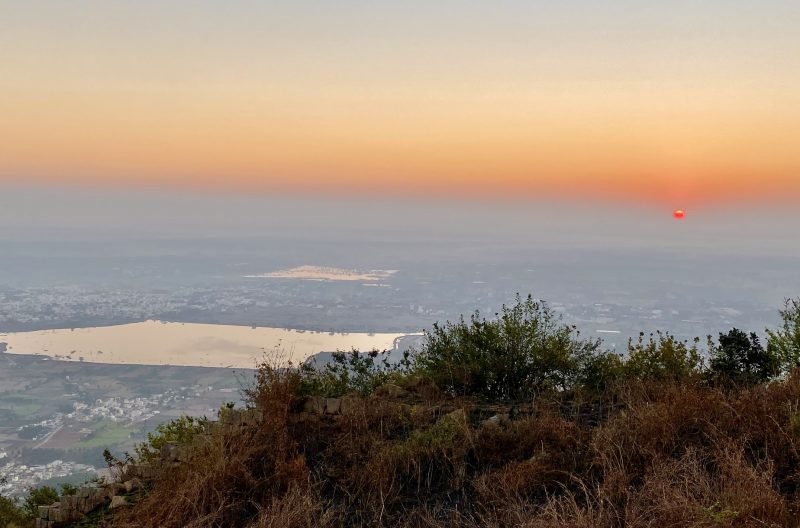
Uttari Betta Trek
Huttari Betta trek offers diverse trails through rocky terrain and lush forests.
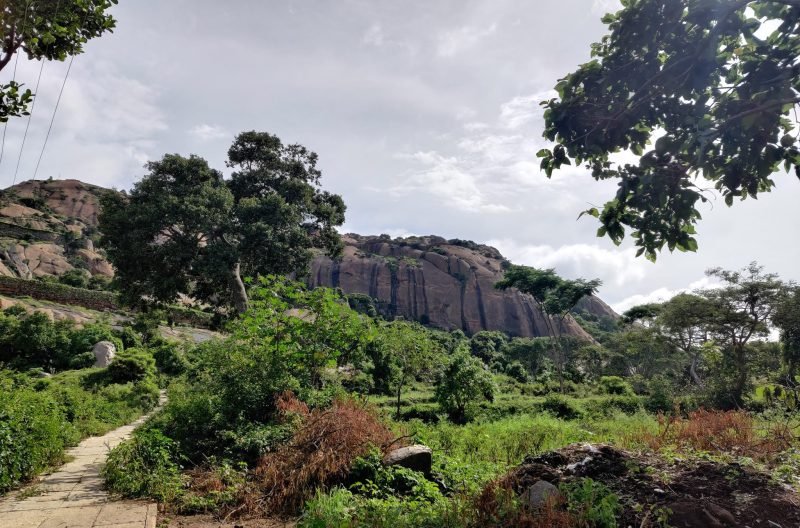
Ettina Bhuja Trek
Descending trek provides serenity, ideal for escaping urban chaos and reconnecting.
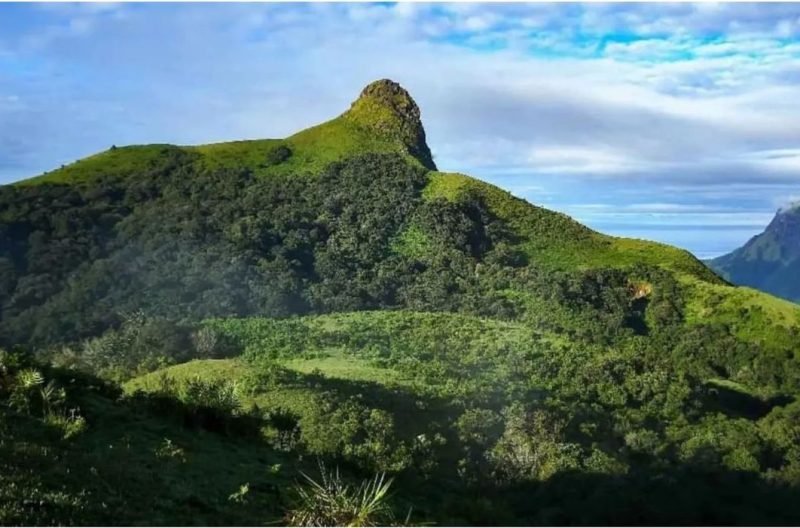
How to Reach Mullayanagiri
Road Routes
Mullayanagiri is well-connected by road. From Bangalore, one can take the NH75 to Chikkamagaluru and then follow the local roads to the base of the peak. Regular bus services and private taxis are also available.
Rail and Air Routes
The nearest railway station is Chikkamagaluru, approximately 22 kilometres from Mullayanagiri. For air travel, the closest airport is Mangalore International Airport, about 170 kilometres away.
Trekking Routes
Popular Trails
Several trekking routes lead to the summit of Mullayanagiri. The most popular trail starts from Sarpadhari, a base point located a few kilometres from Chikkamagaluru. This moderate trek takes about 3-4 hours to reach the peak.
Trekking Tips
Trekking to Mullayanagiri requires a moderate level of fitness. It’s essential to carry adequate water, wear comfortable trekking shoes, and be prepared for sudden weather changes. A local guide can enhance the experience by providing insights into the terrain and local folklore.
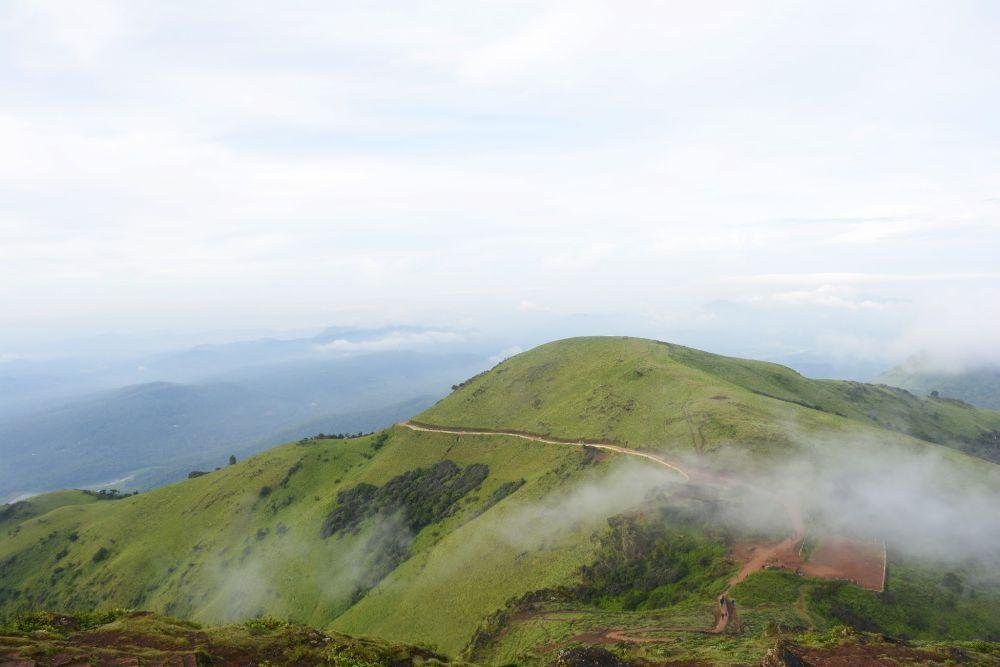
Safety Tips for Trekkers
Essential Gear
Ensure you carry essential trekking gear such as sturdy shoes, rain gear, a first aid kit, and sufficient water and snacks. A walking stick can also be helpful for stability on steep trails.
Precautions
Be cautious of slippery paths during the monsoon, and be aware of your surroundings to avoid encounters with wildlife. It’s advisable to trek in groups and inform someone about your trekking plans.
Local Culture and Traditions
Festivals
The local culture around Mullayanagiri is vibrant and deeply rooted in traditions. Festivals such as Ugadi, Dussehra, and Deepavali are celebrated with great enthusiasm, showcasing the region’s rich cultural heritage.
Customs
Visitors are encouraged to respect local customs and traditions. Dress modestly, especially when visiting temples and interacting with locals. Understanding and appreciating the local way of life can enrich your travel experience.
Nearby Attractions
Baba Budangiri
Close to Mullayanagiri is Baba Budangiri, another significant peak known for its trekking trails and historical caves. It is named after the Sufi saint Baba Budan and is famous for its coffee plantations.
Hebbe Falls
A short drive from Mullayanagiri, Hebbe Falls is a stunning waterfall located within a coffee estate. The falls are divided into two stages – Dodda Hebbe (Big Falls) and Chikka Hebbe (Small Falls) – and offer a refreshing experience amidst nature.
Accommodation Options
Hotels
Chikkamagaluru offers a range of accommodation options, from budget hotels to luxury resorts. Popular choices include Trivik Hotels & Resorts, The Serai, and Taj Gateway.
Resorts and Camping Sites
For those looking to stay closer to nature, several resorts and camping sites are available near Mullayanagiri. These options provide a unique experience, allowing visitors to immerse themselves in the serene environment.
Adventure Activities
Paragliding
Mullayanagiri is a popular spot for paragliding, offering stunning aerial views of the Western Ghats. Several adventure clubs in Chikkamagaluru organize paragliding sessions for thrill-seekers.
Rock Climbing
The rugged terrain of Mullayanagiri also makes it an ideal location for rock climbing. Adventure enthusiasts can enjoy various climbing routes catering to different skill levels.
Photography Spots
Best Vantage Points
Mullayanagiri offers numerous photography opportunities. The peak itself provides panoramic views of the surrounding landscape, while spots like Baba Budangiri and Hebbe Falls are perfect for capturing the beauty of nature.
Photography Tips
For the best photos, visit during the golden hours – early morning or late afternoon. Carry a good quality camera, and don’t forget to capture the vibrant flora and fauna.
Environmental Impact
Sustainability Practices
Tourism has an impact on the environment, and it’s essential to follow sustainable practices. Avoid littering, respect local wildlife, and stay on designated trails to minimize your footprint.
Eco-Tourism
Promoting eco-tourism is crucial for the preservation of Mullayanagiri’s natural beauty. Support local businesses that follow eco-friendly practices and contribute to conservation efforts.
Local Cuisine
Must-Try Dishes
Chikkamagaluru is known for its delicious local cuisine. Don’t miss out on trying dishes like Neer Dosa, Kadabu, and the famous Chikmagalur Coffee.
Culinary Experiences
Several local eateries and cafes offer authentic culinary experiences. Coffee plantations also provide tours and tastings, offering a glimpse into the region’s rich coffee culture.
Weather Conditions
Seasonal Weather
Understanding the weather conditions can help you plan your trip better. Summers are warm, monsoons are wet and slippery, and winters are cool and ideal for trekking.
What to Pack
Pack light but include essentials like a raincoat, warm clothing, sunscreen, and a hat. Sturdy trekking shoes and a backpack with enough water and snacks are also necessary.
Challenges Faced by Trekkers
Common Issues
Trekkers often face challenges like sudden weather changes, altitude sickness, and navigation difficulties. Being prepared can help mitigate these issues.
How to Overcome Them
Carry appropriate gear, stay informed about the weather, and use maps or GPS for navigation. Trekking with a group or guide can also help you overcome challenges.
Wildlife Conservation Efforts
Initiatives
Various initiatives are in place to protect the wildlife around Mullayanagiri. Conservation programs focus on habitat preservation, anti-poaching measures, and community involvement.
Success Stories
There have been several success stories in wildlife conservation, including the protection of endangered species and the restoration of natural habitats.
Visitor Reviews
Visitors often leave glowing reviews of their experiences at Mullayanagiri, highlighting the natural beauty, challenging treks, and serene environment.
Conclusion
Mullayanagiri, the highest peak in Karnataka, is a treasure trove of natural beauty, cultural richness, and adventure. Whether you’re a trekker, a nature enthusiast, or someone seeking spiritual solace, this magnificent peak offers something for everyone. Plan your visit to Mullayanagiri and experience the unparalleled beauty and serenity of this remarkable destination.
Share Your Opinion!
Video Glimpse
Picks By Erica
Makalidurga Trek
Siddara Betta Trek
Handi Gundi Betta
- Skandagiri Trek
- Kumara Parvatha Trek
- Uttari Betta Trek
- Makalidurga Trek
- Tadiandamol Trek
- Ettina Bhuja Trek
- Nandi Hills Trek
- Mullayanagiri Trek
- Kunti Betta Trek
- Devarayanadurga Trek
- Madhugiri Trek
- Narasimha Parvatha Trek
- Pushpagiri Trek
- Kurinjal Trek
- Ombattu Gudda Trek
- Kabbaladurga Trek
- Siddara Betta Trek
- Bheemeshwari Trek
- Bandaje Arbi Falls Trek
- Jenukal Gudda Trek
- Bababudangiri Trek
- Ranganathaswamy Betta Trek
- Kumta Beach Trek
- Bananthimari Betta Trek
- Netravathi Trek
- Bidarakatte Trek
- Kote Betta Trek
- Rayakottai Trek
- Sharavathi Valley Trek
- Savandurga Trek
- Anthargange Trek
- Nishani Motte Trek
- Kodachadri Trek
- Kudremukh Trekking Adventure
- Nirvana Beach Camping
- Handi Gundi Betta Trek
- Sathodi Falls Karnataka
- Channagiri Betta Trek
- Gudibande Fort Trek
- Dudhsagar Falls Trek
- Bandaje Trek
- Kumaraparvata Trekking
- Ravugodlu Trek
- Mandalpatti Trek
- Z Point Trek
- Agumbe
- Ettina Bhuja
- Savandurga
- Shivagange
- Dudhsagar Falls
- Dudhsagar Falls
- Kodachadri
- Sirimane Falls
- Iruppu Falls
- Rayakottai
- Banasura Hill
- Netrani Island
- Netravati Peak
- Mullayanagiri
- Gokarna
- Dandeli
- Chikkamagaluru
- Coorg
- Bangalore
- Kemmangundi
- Karnataka India
- Mysore
- Sakleshpur
- Kotagiri
- Kollur
- Kumta
- Yana
- Devarayanadurga
- Hampi
- Mandalpatti Peak
- Madhugiri Hill
- Avani Betta
- Didupe
- Kumara Parvatha
- Shimoga
- Ermayi Falls
- Manchabele Reservoir
- Bheemeshwari
- Kaiwara
- Kodaikanal Falls
- Murkannu Gudda
- Surla Waterfalls
- Kavaledurga Fort
- Kemmangundi
- Magod Falls
- Jog Falls
- Kanva Dam
- Pandavara Betta
- Ramadevara Betta
- Bhuvanagari Fort
- Athirapally Waterfalls
- Muthati
- Kunthi Hills
- Cubbon Park
- Bannerghatta Biological Park
- Innovative Film City
- Bull Temple
- Murudeshwar
- Markonahalli Dam
- Janapada Loka
- Mallalli Falls
- Devaramane Viewpoint
- Kalasa
- Nagarhole National Park
- Talakadu
- Gangadikal Peak
- Chunchi Falls
- Channagiri Hills
- Horagina Betta
- Kyatanamakki
- Bheemana Kindi
- Muregar Falls
- Devimane Ghat
- Gudavi Bird Sanctuary
- Agni Gudda
- Kurinjal Peak
- Apsarakonda Falls
- Belur And Halebidu
- Soormane Falls
- Srirangapatna Temple
- Hampi Trek
- Dandeli Falls
- Wayanad Trek
- Chikmagalur Hills
- Agumbe Falls
- Paithalmala
- Bangalore Palace
- Mashobra Hills
- Night Camping
- Kaveri Nisargadhama
- Unchalli Falls
- Sakleshpur Falls
- Chikmagalur Trekking Places
- Kaginahare
- Rani Jhari
- Abbey Falls
- Kudremukh National Park
- Bannerghatta National Park
- Nijagal Betta
- Madikeri Fort
- Hidlumane Falls
- Iruppu Falls
- Belkal Theertha Falls
- Devarayanadurga Betta
- Gopalaswamy Betta
- Devarayanadurga Fort
- Hebbe Waterfalls
- Kid Friendly Places Near Bangalore
- Camping Near Bangalore
- Two Day Trip From Bangalore
- Weekend Outing In Bangalore
- Trekking Near Bangalore
- One Day Trip Near Bangalore
- Parties In Bangalore
- Trekking Packages
- Night Trek Bangalore
- Treks Near Bangalore
- Night Trekking In Bangalore
- Weekend Getaways From Bangalore
- Bangalore To Coorg Package
- Best Tourist Places In Kerala
- Team Outing Near Bangalore
- One-Day Road Trips From Bangalore By Car
- Ettina Bhuja Distance From Bangalore
- Hill Stations Near Banaglore
- One Day Trek
- Trekking Near Myosre
- Waterfalls Near Bangalore
- Picnic Spots Near Bangalore
- Top Tourist Places In Bangalore
- Trekking In Bangalore
- Chikmagalur Trekking Packages
- Bangalore To Hampi Distance
- New Year Events In Bangalore
- Sunrise Trek Near Bangalore
- Places To Visit In Madikeri In 2 Days
- Go Karting In Bangalore
- Trampoline Park Bangalore
- Best Street Food In Bangalore
- Places To Visit In Tumkur
- Agumbe Tourist Places
- Best Beach In Gokarna
- Kanakapura Waterfalls
- Sunrise At Nandi Hills
- Uttari Betta Trek Location
- Bangalore To Gokarna
- Bangalore To Coorg
- Bangalore To Ooty
- Nandi Hills Tent Stay
- Dandeli Trekking
- Murudeshwar Sightseeing
- Waterfalls In Udupi
- Solo Travel
- Adventure
- Beautiful Places To Visit In India
- Kolukkumalai Sunrise
- Mysore Trip
- Coorg Waterfalls
- Chikmagalur Hill
- White Hills Bangalore
- Sholay Shooting Hill Top
- Activities To Do In Bangalore
- Night Camping
- Hills In Bangalore
- Places To Visit Near Adiyogi
- Trekking In Karnataka
- Agumbe Ghat
- Famous Places In Karnataka
- Highest Peak In Karnataka
- Hill Stations Near Bangalore
- Historical Places In Karnataka
- Bandipur Safari Timings
- Beaches Near Bangalore
- Chikmagalur Tourist Places
- Coorg Trekking
- Famous Temples In Bangalore
- Fun Activities In Bangalore
- Gokarna Main Beach
- Gokarna Trip
- Historical Places In Bangalore
- Picnic Spots In Bangalore
- Places Around Bangalore
- Places In Gokarna
- Places To Visit In Bangalore With Family
- Places To Visit In Chikmagalur
- Places To Visit In Gokarna
- Places To Visit In Honnavar
- Places To Visit In Shimoga
- Rock Climbing In Bangalore
- Sakleshpur Places
- Sakleshpur Tourist Places
- Sakleshpur Trek
- Shimoga Places To Visit
- National Parks In Karnataka
- Tourist Places In Karnataka
- Tourist Places Near Bangalore Within 100 Kms
- Traditional Food Of Karnataka
- Treks In Karnataka
- Sirsi Karnataka
- Coorg Falls
- Kunti Betta From Bangalore
- Kunti Betta Trek Distance
- Nature Places In Bangalore
- Mysore Tourist Places
- Muthanga Wildlife Safari
- Cities In Karnataka
- Coastal Karnataka
- Devarayanadurga Distance
- Places To Visit In Chikmagalur In 2 Days
- Places To Visit In Hassan
- Sangam Waterfalls
- Sangam Waterfalls
- Savandurga Trek Distance
- Skandagiri Trek Start Point
- Kodaikanal Tourist Places
- Bangalore To Munnar
- Bangalore To Hampi
- Bangalore To Coorg Distance
- Banglore To Ooty
- Bangalore To Sakleshpur
- Bangalore To Hogenakkal
- How To Reach Coorg
- Bangalore To Shivanasamudra
- Bangalore To Mysore
- Bangalore To Kodaikanal
- Bangalore To Kudremukh
- Bangalore To Chikmagalur Distance
- Bangalore To Shimoga
- Frequently Asked Questions - Munnar
- Frequently Asked Questions - Ooty
- Frequently Asked Questions - Dudhsagar
- Frequently Asked Questions - Dandeli
- Frequently Asked Questions - Chikmagalur
- Frequently Asked Questions - Coorg
- Frequently Asked Questions - Mysore
- Frequently Asked Questions - Alleppey
- Frequently Asked Questions - Bangalore
- Frequently Asked Questions - Bangalore
Host Events
Collaboration
Copyright © 2024 EventsErica


